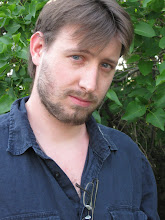Hans wrote:
Why call it "conservatism", then? If the word is to mean something, it is about conserving a status, or elements thereof that are seen as desirable, and for doing that, you need to know the status, its meaning, and what the alternatives are, and why they are worse. Otherwise, it's just fear of the unknown masked as a worldview. Knowledge and innocence aren't good bedfellows. Any meaningful conservatism is a position for adults, not for little children.
1. Concerning the question, "Why call it conservatism?"
Fair enough. We don't have to call it conservatism if you don't want to; it's only that this is what most regular self-identifying conservatives actually mean by the term. It's what they desire from the movement in the first place. If the emblem underneath which they rally has been drained of this simple content (and many would agree that it has), then they may well begin calling themselves something else. A new match-strike moniker has yet to be found, however.
2. Concerning the statement, "Any meaningful conservatism is a position for adults, not for little children."
But in that case it would die out with the adults, and would ultimately conserve nothing. I don't think Goldman would agree with you here, at least not with words; but his actions agree with you rather nicely, and that disaprity goes right to the heart of my criticism of him.
Goldman's major trope during his "Spengler" years was that culture is a sort of cross-generational social contract. Conservatism is not only something fit for little children, it is for the children and about the children. He was right about all this. The values that conservatives espouse are always ordered to the continuity of hearth and home, family and race. Children sense the intrinsic value of their cultural myths and are eager to see their strictures enforced. Furthermore, it is not quite correct to assert that conservatism is fundamentally about conserving a "status." The basic thrust of the Burkean position is that the living tradition ought not to be defiled. Things must change and grow, but they should do so on the basis of that which has already proved itself reliable, incorporating new possibilities into the body politic in a way that nourishes rather than poisons it. In these and other ways, conservatism is mainly a doctrine of applied common sense.
Goldman gave his intellectual assent to all this, but his knowledge never trickled down far enough to effect the mode of his living. Or of it did so, it was only in a purely outward and mechanical way: his perfunctory reversion to Judaism, for example. If you asked him how exactly his mature embrace of "tradition" has helped him or anyone else, I don't think he could provide you with an answer that would hold water. I doubt not that he really believes, of course - I would not accuse a man of sacrilege - but he believes that which he has justified for himself. There is something theatrical about a piety that says, "I recognize that cultures with a strong sense of the transcendent survive and endure; therefore, I will believe in God." It's like joining the victorious army after the battle has been won. A faith worth having is seldom acquired so painlessly.
Fr. Neuhaus is a different story. He was by all accounts brilliant and entirely devout. I've been poring over the Neuhaus archive in an effort to familiarize myself with the man, and I fully agree with that assesment. I find very little to disagree with in the plain text of his thought. It's just that I find his life wholly uninspiring. As badly as I feel speaking ill of such a one, I cannot shake off my frustration with someone who seemed to "know everything" but was content merely to write about it. Writing is not enough. It's said that as an informal advisor to President Bush, he was among the 25 most influential evangelicals in America. I don't doubt that he was, but the Bush era was not exactly a sterling success for Catholic principles, so the influence seems not to have yielded much fruit.
I have said it before, and I'll continue saying it for as long as I draw breath. What Goldman and Neuhaus are doing isn't really wrong, but it is an extravagence the efficacy of which is quite overrated. The faith doesn't need any more editors. It doesn't need comfortable moderns who also happen to be Catholic. It needs adherents in spirit and truth. It's enough already with "engaging the culture" - which probably could have been Fr. Neuhaus' personal motto. Engaging the culture has produced nothing but lukewarm Catholics. Principled disengagement from the culture is the only response today worthy of men. The sooner we recognize this the better.

What exactly do you mean by "principled disengagement"? I suspect it is not hermeticism. Are you suggesting an organized secession from...I don't even know what to call it..."global secular culture"?
ReplyDelete